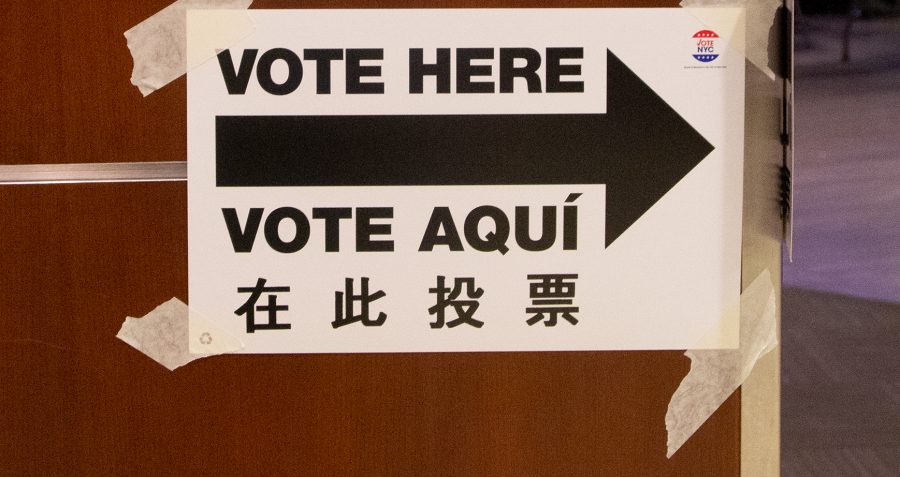Tuesday’s blue wave at the polls may not have lived up to Democrats’ expectations, but a more progressive agenda than ever may still be in store for New York, where Democrats have taken control of all three branches of government after gaining a majority in the New York state Senate for the first time since 2010.
Republicans have had control of the state Senate since the 1970s, preventing Democrats from taking full control of the state government. Although Democrats had a one-seat majority in 2010, Democrat Simcha Felder caucusing with the other side gave Republicans an effective majority. In 2011, a group known as the Independent Democratic Conference, formed by senator Jeff Klein, included multiple Democrats who caucused with Republicans, giving them greater control of the state Senate.
However, with young, progressive Democrats unseating former IDC members in the primaries and in the overwhelming Democratic win on Tuesday, the party’s estimated 39 seats in the 63-member state Senate will be more than enough to maintain control and move forward with a progressive agenda.
Alessandra Biaggi, the newly-elected representative for the 34th Senate District, beat Klein in the primaries and Republican Richard Ribustello in the general election. Biaggi is one of the more left-leaning Democrats who may be leading the state Senate going forward.
“Among the key issues are passing the Reproductive Health Act, which will provide New York women with all the protections of Roe v. Wade in New York law,” Alessandra Biaggi’s Press Secretary David Neustadt wrote in an email to WSN. “Given the bad experience voters had in New York City on election day, it’s essential to pass strong measures to make it easier to register and vote, including early voting.”
With many concerned about Roe v. Wade being overturned after Associate Justice Brett Kavanaugh was appointed to the U.S. Supreme Court, there has been a recent push to enact the ruling into state law.
Currently, New York state allows an abortion to be performed within the first 24 weeks of a pregnancy. After 24 weeks, the state only allows an abortion to be performed in cases where the patient’s life is in immediate danger, Roe v. Wade, by contrast, has an additional exception for the endangerment of one’s health, which extends to non-viable pregnancies. The RHA would change state law to represent Roe v. Wade, which would be beneficial for New Yorkers not wanting to carry a non-viable pregnancy to term, whose only alternative is to get the procedure done in a different state.
Garin Marshall is a patient advocate with RHAvote, an advocacy group which has been fighting for passage of the RHA for years. Marshall said he expects swift movement on the policy after the Democrats took the state Senate.
“Swift passage of the RHA would allow these patients to get care in the state,” Marshall said. “We need to put an end to these stories and fix the law with the strongest possible state protections for pregnant New Yorkers and [their] families.”
In addition to the RHA and voting reform, Neustadt said Biaggi will also prioritize efforts to get rid of a loophole that allows limited liability companies to be treated as natural persons under campaign finance laws, which in turn increases their contribution limits. She will also focus on criminal justice reform, greater funding for schools and rent regulation.
Secretary of NYU College Democrats Arman Becan said the group was excited to see what else may be on the agenda after Tuesday’s elections.
“With a single-party rule in both chambers of the state legislature and a Democratic governor, we can’t wait to see progressive legislation getting passed like more liberal voting laws, more funding for the MTA and infrastructure, comprehensive gun legislatio and other policies that have been stymied by the Republicans and the IDC in the past,” Becan said.
One such policy may be the Child Victims Act, which would give victims of sexual assault as children the opportunity to sue their abusers later in life. The act, also known as Marsy’s Law, has been a priority for Democrats in the state. There’s also the Red Flag Gun Protection Bill, which would allow teachers and school administrators to petition a judge to remove guns from the homes of students seen as troubled to prevent gun violence in schools.
Healthcare plans were also an issue for Democrats during their campaigns. Elisabeth Benjamin, co-founder of advocacy group Healthcare For All New York, said she expects big changes in the state’s current healthcare system.
Benjamin said that New York may see the creation of a review board for commercial drug prices, modeled after the existing board that reviews drugs and prices for state-run Medicaid.
“Consumers are extremely frustrated with the avaricious nature of the healthcare system,” she said.
She thinks a single-payer healthcare system may soon be in the works.
“I think it’s clear the Democratic houses in both categories are interested in a single-payer healthcare system at some level, so I think we’ll see that,” Benjamin said.
In any case, such a system would take years to enact. For that reason, Benjamin hopes expanding healthcare coverage for undocumented immigrants and creating a state-funded assistance program using tax credits could be implemented in the interim.
When asked what her response may be to people who may still be hesitant when it comes to a single-payer system, Benjamin emphasized that such hesitation is unwarranted.
“I would say very strongly to any elected officials, healthcare is a winning issue for voters,” she said. “People are mad and they want their elected officials to act quickly, and act now.”
Email Victor Porcelli at [email protected].
























































































































































